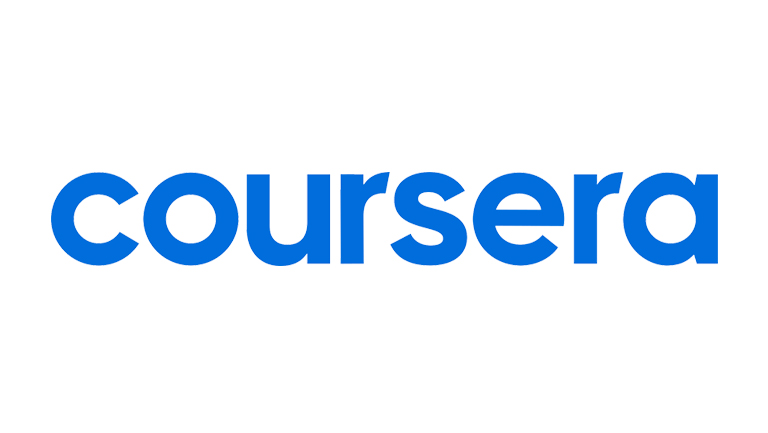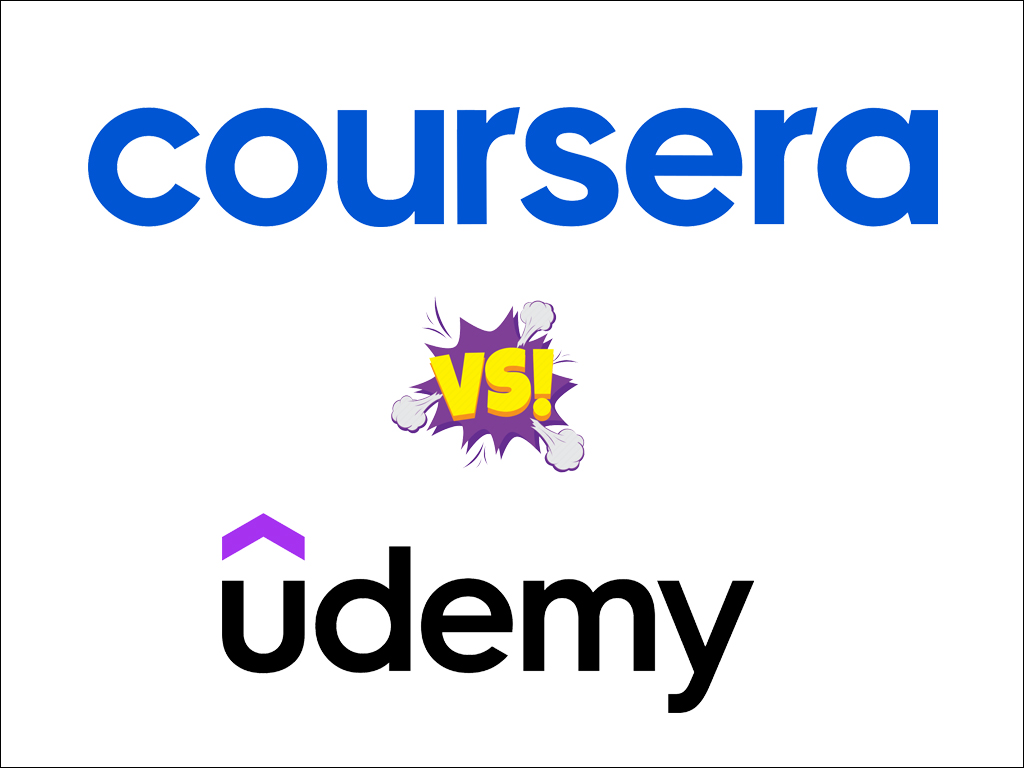In today’s digital age, online learning platforms like Coursera and Udemy have emerged as game-changers in education. Both platforms offer extensive learning opportunities, but they cater to different audiences and have distinct features. Here, we dive deep into a detailed comparison of Coursera and Udemy to help you decide which is the right fit for your educational needs.

Coursera: Bridging Academia and Online Learning
Overview
Coursera collaborates with top universities and organizations worldwide, such as Stanford University, the University of Michigan, and Google, to offer academic-level courses. It focuses on delivering high-quality, structured learning experiences that often lead to professional certifications or degrees.
Key Features
Accredited Certifications and Degrees: Many courses provide accredited certificates, while some programs offer fully online bachelor’s and master’s degrees.
Guided Projects and Specializations: Coursera’s Guided Projects allow learners to complete real-world tasks, and Specializations bundle related courses into a comprehensive learning path.
Flexible Learning Options: Courses are typically structured with deadlines but offer flexibility in completing assignments within specified timeframes.
Free and Paid Options: Some courses are free to audit, but certificates and full program access require payment, with prices ranging from $39 to several thousand dollars for degree programs.
Strengths
Academic Rigor: Content is developed by experts from prestigious institutions.
Career-Oriented Programs: Certifications and degrees are recognized by employers.
Financial Aid: Coursera offers financial aid for eligible learners.
Weaknesses
Higher Costs: Professional certificates and degrees can be expensive.
Structured Timelines: Less flexibility for learners who prefer completely self-paced courses.
Best For
Professionals seeking recognized certifications or degrees.
Learners who value academic quality and institutional affiliations.
Those pursuing career advancement in technical or specialized fields like data science or business.

Udemy: Democratizing Learning with Accessibility
Overview
Udemy is a global marketplace for learning, offering over 200,000 courses taught by independent instructors. It emphasizes accessibility and affordability, with courses spanning a wide range of topics, from programming and marketing to yoga and personal development.
Key Features
Affordable Pricing: Courses often range from $10 to $200, with frequent discounts and promotions.
Lifetime Access: Once purchased, learners have unlimited access to course content.
Wide Variety of Topics: From professional skills to hobbies, Udemy caters to diverse interests.
Instructor-Created Content: Courses are created by individual instructors, allowing for unique perspectives and teaching styles.
Strengths
Cost-Effective: Courses are budget-friendly, with regular discounts making them even more accessible.
Self-Paced Learning: Learners can complete courses at their own pace without deadlines.
Variety of Choices: Offers courses on niche topics not commonly found on academic platforms.
Weaknesses
Inconsistent Quality: Course quality varies widely, as content is instructor-driven without a centralized standard.
No Accreditation: Certificates of completion are not recognized by employers or academic institutions.
Limited Depth: Many courses are introductory or lack the depth of academic programs.
Best For
Hobbyists and individuals looking to explore new skills casually.
Budget-conscious learners seeking practical, hands-on training.
Professionals needing quick skill updates or niche knowledge.
Head-to-Head Comparison
| Feature | Coursera | Udemy |
|---|---|---|
| Cost | Free to $10,000+ | $10 to $200 (frequent sales) |
| Accreditation | Yes, for many programs | No |
| Content Depth | Comprehensive and academic | Varies widely |
| Flexibility | Flexible but with deadlines | Completely self-paced |
| Target Audience | Career-focused learners | Casual and budget learners |
| Number of Courses | ~7,000 | ~200,000 |
Conclusion
Choosing between Coursera and Udemy depends largely on your goals:
Opt for Coursera if you need accredited certifications, degrees, or structured academic learning.
Choose Udemy for affordable, flexible, and diverse courses catering to both professional and personal development.
Both platforms are valuable tools in today’s learning landscape, offering unique advantages that cater to a wide spectrum of learners. By understanding your priorities, you can make an informed decision and unlock your full potential.
